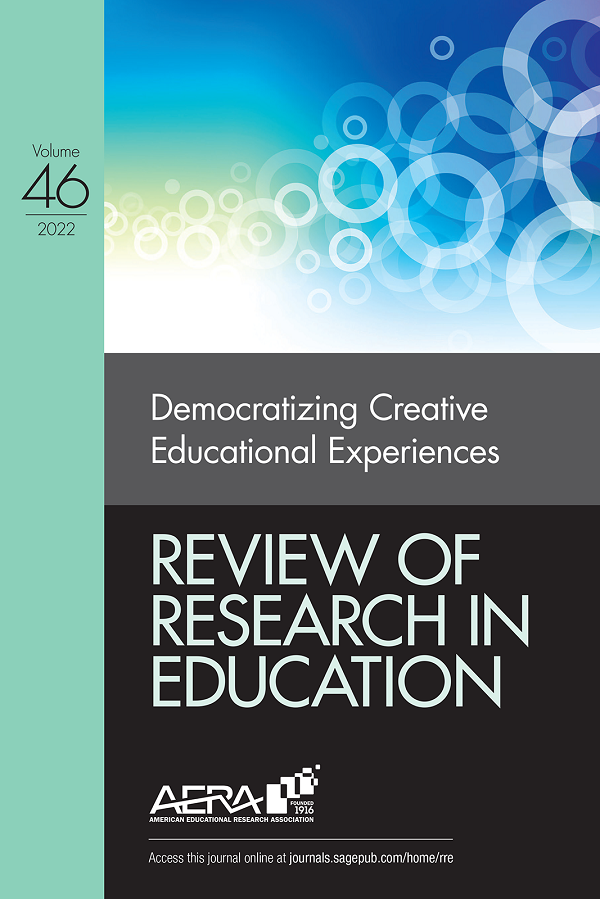Putting the Radical Notion of Equality in the Service of Disrupting Inequality in Education: Research Findings and Conceptual Advances on the Infinity of Human Potential
IF 2.4
1区 教育学
Q1 EDUCATION & EDUCATIONAL RESEARCH
引用次数: 21
Abstract
Research on disrupting inequality in education can benefit from situating it within the debates on varying and often conflicting meanings of equality and its perils and promises. Especially in the wake of achievement testing and resurgent biological determinism, researchers continue to equivocate between commitment to the idea that all humans are equal in their core capacities versus the tendency to attribute developmental outcomes to differences in “natural” inborn talents and endowments. This chapter examines contemporary research and theorizing to address the tenet of fundamental equality to counter biological determinism laden with mythic racial, gender, and other types of unproven assumptions and biases. Drawing on a wide range of emerging positions and evidence across neurosciences, epigenetics, developmental systems perspective, and cultural-historical framework, the core argument is that all persons have infinite potential—incalculable in advance, unlimited, and not predefined in terms of any putatively inborn “endowments.” This potential is realized in the course of activity-dependent generation of open-ended, dynamic, and situated developmental processes that are critically reliant upon sociocultural supports, tools, mediations, and access to requisite resources, especially through education. An educational policy along these lines would be centrally premised on the imperative to remedy the effects of discrimination and marginalization.将激进的平等观服务于打破教育不平等——关于人的潜力无限性的研究发现和概念进展
关于打破教育不平等的研究可以从将其置于关于平等及其危险和承诺的不同且往往相互冲突的含义的辩论中受益。特别是在成就测试和生物决定论死灰复燃之后,研究人员继续在致力于所有人类在核心能力上都是平等的这一理念与将发展结果归因于“天生”天赋和禀赋差异的倾向之间模棱两可。本章考察了当代研究和理论,以解决基本平等的原则,对抗充满神话般的种族、性别和其他类型的未经证实的假设和偏见的生物决定论。根据神经科学、表观遗传学、发育系统视角和文化历史框架中的广泛新兴立场和证据,核心论点是所有人都有无限的潜力——无法预先估量、无限的,并且不是根据任何假定的天生“禀赋”来预先定义的。“这种潜力是在依赖活动的开放式、动态的、情境化的发展过程中实现的,这些过程严重依赖于社会文化支持、工具、中介和获得必要资源的机会,尤其是通过教育。按照这些方针制定的教育政策的核心前提是必须纠正歧视和边缘化的影响。
本文章由计算机程序翻译,如有差异,请以英文原文为准。
求助全文
约1分钟内获得全文
求助全文
来源期刊

Review of Research in Education
EDUCATION & EDUCATIONAL RESEARCH-
CiteScore
15.70
自引率
0.00%
发文量
14
期刊介绍:
Review of Research in Education (RRE), published annually since 1973 (approximately 416 pp./volume year), provides an overview and descriptive analysis of selected topics of relevant research literature through critical and synthesizing essays. Articles are usually solicited for specific RRE issues. There may also be calls for papers. RRE promotes discussion and controversy about research problems in addition to pulling together and summarizing the work in a field.
 求助内容:
求助内容: 应助结果提醒方式:
应助结果提醒方式:


